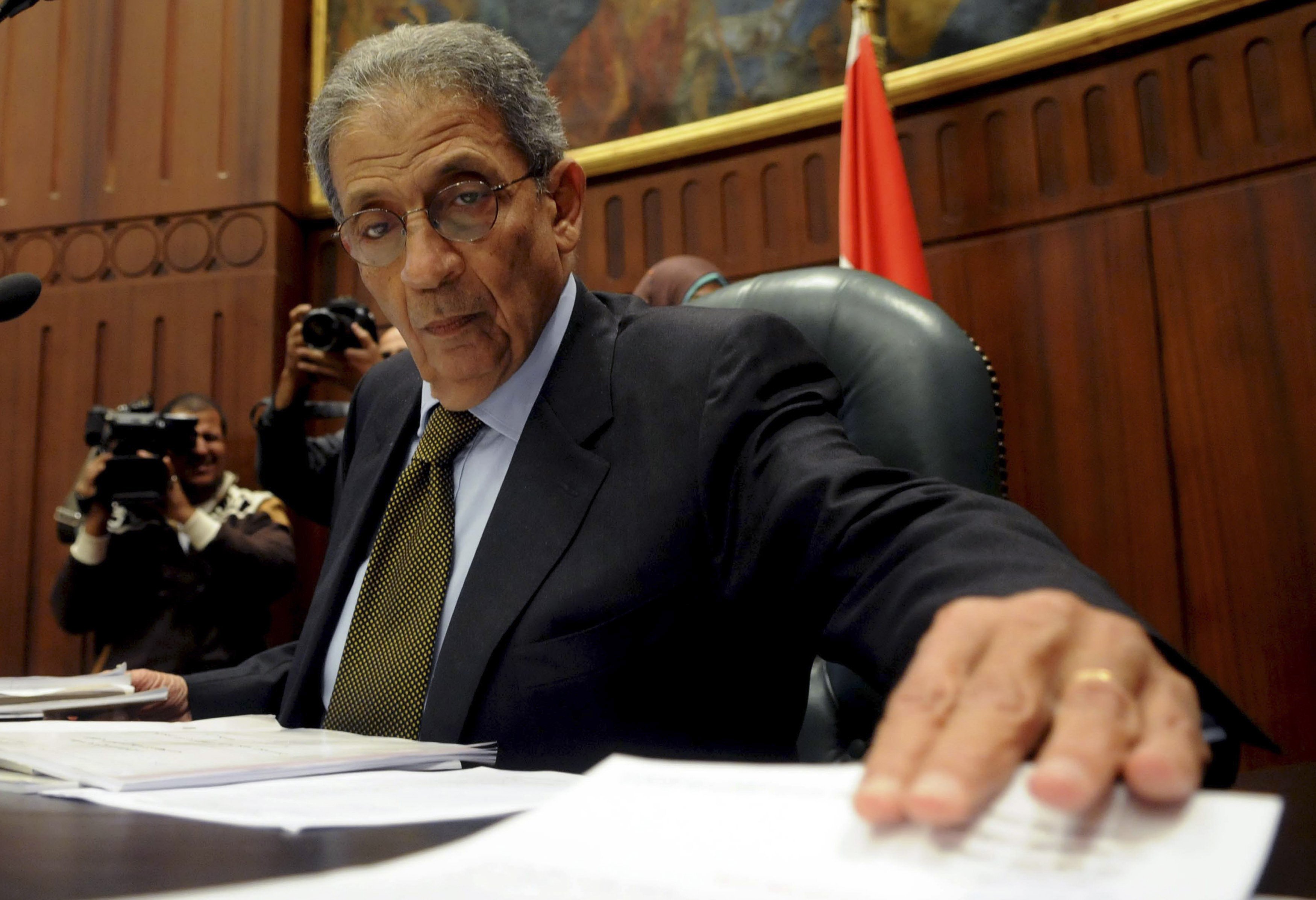Latest NEWS
- Aswat Masriya, the last word
- Roundup of Egypt's press headlines on March 15, 2017
- Roundup of Egypt's press headlines on March 14, 2017
- Former Egyptian President Hosni Mubarak to be released: lawyer
- Roundup of Egypt's press headlines on March 13, 2017
- Egypt's capital set to grow by half a million in 2017
- Egypt's wheat reserves to double with start of harvest -supply min
- Roundup of Egypt's press headlines on March 12, 2017
FACTBOX | Egypt's draft constitution

CAIRO, Dec 2 (Reuters) - Egypt's constituent assembly finalised a draft constitution on Sunday that will be put to a referendum this month or next. It is a major milestone in the army's political roadmap after the ouster of Islamist President Mohamed Mursi in July.
The 50-member assembly named by interim head of state Adly Mansour was mainly composed of liberals and leftists and chaired by Amr Moussa, a former Arab League secretary general and candidate for the presidency.
Following are some key elements of the draft, which will be handed to Mansour on Tuesday.
PROVISIONS FOR POLITICAL TRANSITION
The draft constitution opens the door for changes to the transition plan by giving the authorities the option of holding a presidential election before parliamentary polls, or calling both elections at the same time. The original plan was to hold parliamentary elections first.
It also stipulates that "election procedures" should start within six months of the ratification of the constitution.
It is now up to Mansour to decide when and how the elections will be held.
Mansour will have presidential powers until an elected president is sworn in.
The transitional provisions also stipulate that the Supreme Council of the Armed Forces (SCAF) must approve the choice of defence minister for a period of two full presidential terms after the ratification of the constitution.
PRESIDENTIAL POWERS
The president can only serve two four-year terms. Candidates must be at least 40 years old. The president must be Egyptian and born to Egyptian parents. Neither he, his parents, or his wife may have foreign nationality.
The president appoints a prime minister who must secure the approval of parliament. If parliament rejects the choice, the president must accept the nomination of the prime minister picked by the party or alliance that has the majority.
The government must also win parliament's approval. If it does not, parliament is dissolved and new parliamentary elections must be held.
The president can dismiss the government with the approval of the majority of parliament. He must secure the approval of the majority of the parliament to reshuffle the cabinet.
The president is the supreme commander of the armed forces.
The parliament can withdraw confidence from the president provided that the majority of its members approve the move.
THE MILITARY
The defence minister must be an army officer.
The military budget is to be discussed by a national defence council made up of top state officials including the president, the prime minister and the minister of defence. The constitution does not say who has the power to approve the budget.
Civilians may be tried by military courts in a range of crimes related to the army such as direct assaults on military facilities, camps, military areas, borders, military equipment and vehicles.
RELIGION
Islam is the religion of the state and the principles of Islamic law, or sharia, are the main source of legislation. In personal status affairs, Christians and Jews follow their religious codes.
Political parties may not be formed on the basis of religion.
Al-Azhar is the state's main reference in religious sciences and Islamic affairs and is funded by the state. Its top cleric will be picked by the Senior Scholars Authority of Al-Azhar according to a law that the constitution does not define.
FREEDOMS AND RIGHTS
Political parties cannot be formed on the basis of gender, race, sect or geography. Parties cannot practice activities that are against the principles of democracy. They must not be secretive or have military or paramilitary components.
Citizens have the right to organise public meetings and demonstrations and all forms of peaceful protests, though they must notify the authorities and follow a law that the constitution does not define.
The constitution bans all forms of slavery, the sex trade and "abuse of human beings".
The state "guarantees the achievement of equality between women and men in all civil, political, economic, social and cultural rights". (Reporting by Yasmine Saleh and Asma Alsharif. Editing by Christopher Wilson)










